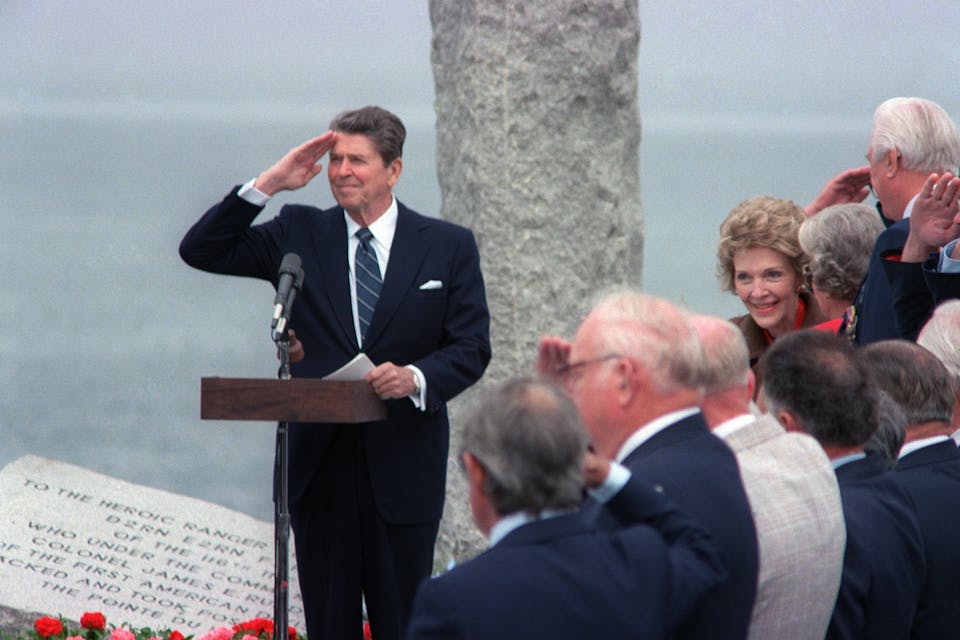
July 1, 2024
‘I Will Not Fail Thee Nor Forsake Thee’
American civilization seems to have forgotten the central lesson that, for peace to endure, evil must be defeated.
As the 80th anniversary of D-Day was marked in early June, many recalled the address given in Normandy by Ronald Reagan 40 years earlier—his celebration of the “boys of Pointe du Hoc.” In a biblically inspired speech, Reagan described General Matthew Ridgeway listening in the darkness the night before the assault and pondering God’s words to Joshua in the Bible: “I will not fail thee nor forsake thee.” Reagan concluded by vowing: “Let our actions say to them the words for which Matthew Ridgway listened: ‘I will not fail thee nor forsake thee.’”
The speech is justly celebrated and remembered. A year later, on Veterans Day in 1985, Reagan delivered another set of remarks at Arlington National Cemetery inspired by the same story. This now-obscure event deserves to be recalled as I write, with the White House demanding of Israel a permanent cease-fire in Gaza. Reagan’s Veterans Day remarks were not merely a masterpiece of rhetoric; they succinctly summarize a larger moral and political point about the necessity of war and the mistakes statesmen make about peace. It is a speech with eerie relevance to the moment in Israel today, and to the role of America in the world.
At Arlington, the president, as at Normandy, spoke of the sacrifices made by those who fell. But he then emphasized another theme—one largely absent from the Pointe du Hoc remarks—that sadly, those who died had had to fight in the first place because their leaders had failed them, because statesmen had spoken of a “peace process” that was merely an excuse to allow evil to fester.